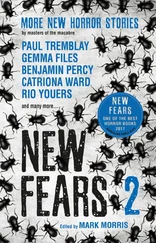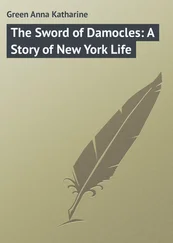Ann Beattie - The New Yorker Stories
Здесь есть возможность читать онлайн «Ann Beattie - The New Yorker Stories» весь текст электронной книги совершенно бесплатно (целиком полную версию без сокращений). В некоторых случаях можно слушать аудио, скачать через торрент в формате fb2 и присутствует краткое содержание. Жанр: Старинная литература, на английском языке. Описание произведения, (предисловие) а так же отзывы посетителей доступны на портале библиотеки ЛибКат.
- Название:The New Yorker Stories
- Автор:
- Жанр:
- Год:неизвестен
- ISBN:нет данных
- Рейтинг книги:5 / 5. Голосов: 1
-
Избранное:Добавить в избранное
- Отзывы:
-
Ваша оценка:
- 100
- 1
- 2
- 3
- 4
- 5
The New Yorker Stories: краткое содержание, описание и аннотация
Предлагаем к чтению аннотацию, описание, краткое содержание или предисловие (зависит от того, что написал сам автор книги «The New Yorker Stories»). Если вы не нашли необходимую информацию о книге — напишите в комментариях, мы постараемся отыскать её.
The New Yorker Stories — читать онлайн бесплатно полную книгу (весь текст) целиком
Ниже представлен текст книги, разбитый по страницам. Система сохранения места последней прочитанной страницы, позволяет с удобством читать онлайн бесплатно книгу «The New Yorker Stories», без необходимости каждый раз заново искать на чём Вы остановились. Поставьте закладку, и сможете в любой момент перейти на страницу, на которой закончили чтение.
Интервал:
Закладка:
“Are you a musician?” she asks.
“Me? Well, sometimes. I play electric piano. I can play classical piano. I don’t do much of it.”
“No time?” she says.
“Right. Too many distractions.”
He takes a flask out from under his sweater. “If you don’t feel like the long walk to join your friend, have a drink with me.”
Cynthia accepts the flask, quickly, so no one will see. Once it is in her hands, she doesn’t know what else to do but drink from it.
“Where you coming from?” he asks.
“Buffalo.”
“Seen the comet?” he asks.
“No. Have you?”
“No,” he says. “Some days I don’t think there is any comet. Propaganda, maybe.”
“If Nixon said there was a comet, then we could be sure there wasn’t,” she says.
The sound of her own voice is strange to her. The man is smiling. He seems to like talk about Nixon.
“Right,” he says. “Beautiful. President issues bulletin comet will appear. Then we can all relax and know we’re not missing anything.”
She doesn’t understand what he has said, so she takes another drink. That way, she has no expression.
“I’ll drink to that, too,” he says, and the flask is back with him.
Because Charlie is apparently going to be in the drinking car for a while, the man, whose name is Peter, comes and sits next to her.
“My first husband was named Pete,” she says. “He was in the Army. He didn’t know what he was doing.”
The man nods, affirming some connection.
He nods. She must have been right.
Peter tells her that he is on his way to see his grandfather, who is recovering from a stroke. “He can’t talk. They think he will, but not yet.”
“I’m scared to death of getting old,” Cynthia says.
“Yeah,” Peter says. “But you’ve got a way to go.”
“And then other times I don’t care what happens, I just don’t care what happens at all.”
He nods slowly. “There’s plenty happening we’re not going to be able to do anything about,” he says.
He holds up a little book he has been looking through. It is called Know What Your Dreams Mean .
“Ever read these things?” he asks.
“No. Is it good?”
“You know what it is—right? A book that interprets dreams.”
“I have a dream,” she says, “about being at an altar in a wedding dress, only instead of standing on the floor I’m on a scale.”
He laughs and shakes his head. “There’s no weird stuff in here. It’s all the usual Freudian stuff.”
“What do you mean?” she asks.
“Oh—you dream about your teeth crumbling; it means castration. That sort of stuff.”
“But what do you think my dream means?” she asks.
“I don’t even know if I half believe what I read in the book,” he says, tapping it on his knee. He knows he hasn’t answered her question. “Maybe the scale means you’re weighing the possibilities.”
“Of what?”
“Well, you’re in a wedding dress, right? You could be weighing the possibilities.”
“What will I do?” she says.
He laughs. “I’m no seer. Let’s look it up in your horoscope. What are you?”
“Virgo.”
“Virgo,” he says. “That would figure. Virgos are meticulous. They’d be susceptible to a dream like the one you were talking about.”
Peter reads from the book: “Be generous to friends, but don’t be taken advantage of. Unexpected windfall may prove less than you expected. Loved one causes problems. Take your time.”
He shrugs. He passes her the flask.
It’s too vague. She can’t really understand it. She sees Lincoln shaking the beads, but it’s not her fault this time—it’s the horoscope’s fault. It doesn’t say enough.
“That man I’m with wants to marry me,” she confides to Peter. “What should I do?”
He shakes his head and looks out the window. “Don’t ask me,” he says, a little nervously.
“Do you have any more books?”
“No,” he says. “All out.”
They ride in silence.
“You could go to a palmist,” he says after a while. “They’ll tell you what’s up.”
“A palmist? Really?”
“Well, I don’t know. If you believe half they say . . .”
“You don’t believe them?”
“Well, I fool around with stuff like this, but I sort of pay attention to what I like and forget what I don’t like. The horoscope told me to delay travel yesterday, and I did.”
“Why don’t you believe them?” Cynthia asks.
“Oh, I think most of them don’t know any more than you or me.”
“Then let’s do it as a game,” she says. “I’ll ask questions, and you give the answer.”
Peter laughs. “O.K.,” he says. He lifts her hand from her lap and stares hard at it. He turns it over and examines the other side, frowning.
“Should I marry Charlie?” she whispers.
“I see . . .” he begins. “I see a man. I see a man . . . in the drinking car.”
“But what am I going to do?” she whispers. “Should I marry him?”
Peter gazes intently at her palm, then smooths his fingers down hers. “Maybe,” he says gravely when he reaches her fingertips.
Delighted with his performance, he cracks up. A woman in the seat in front of them peers over the back of her chair to see what the noise is about. She sees a hippie holding a fat woman’s hand and drinking from a flask.
“Coleridge,” Peter is saying. “You know—Coleridge, the poet? Well, he says that we don’t, for instance, dream about a wolf and then get scared. He says it’s that we’re scared to begin with, see, and therefore we dream about a wolf.”
Cynthia begins to understand, but then she loses it. It is the fault of the sleeping pill and many drinks. In fact, when Charlie comes back, Cynthia is asleep on Peter’s shoulder. There is a scene—or as much of a scene as a quiet man like Charlie can make. Charlie is also drunk, which makes him mellow instead of really angry. Eventually, brooding, he sits down across the aisle. Late that night, when the train slows down for the Georgia station, he gazes out the window as if he noticed nothing. Peter helps Cynthia get her bag down. The train has stopped at the station, and Charlie is still sitting, staring out the window at a few lights that shine along the tracks. Without looking at him, without knowing what will happen, Cynthia walks down the aisle. She is the last one off. She is the last one off before the train pulls out, with Charlie still on it.
Her parents watch the train go down the track, looking as if they are visitors from an earlier century, amazed by such a machine. They had expected Charlie, of course, but now they have Cynthia. They were not prepared to be pleasant, and there is a strained silence as the three watch the train disappear.
That night, lying in the bed she slept in as a child, Cynthia can’t sleep. She gets up, finally, and sits in the kitchen at the table. What am I trying to think about, she wonders, closing her hands over her face for deeper concentration. It is cold in the kitchen, and she is not so much hungry as empty. Not in the head, she feels like shouting to Lincoln, but in the stomach—somewhere inside. She clasps her hands in front of her, over her stomach. Her eyes are closed. A picture comes to her—a high, white mountain. She isn’t on it, or in the picture at all. When she opens her eyes she is looking at the shiny surface of the table. She closes her eyes and sees the snow-covered mountain again—high and white, no trees, just mountain—and she shivers with the coldness of it.
Dwarf House

“Are you happy?” MacDonald says. “Because if you’re happy I’ll leave you alone.”
Читать дальшеИнтервал:
Закладка:
Похожие книги на «The New Yorker Stories»
Представляем Вашему вниманию похожие книги на «The New Yorker Stories» списком для выбора. Мы отобрали схожую по названию и смыслу литературу в надежде предоставить читателям больше вариантов отыскать новые, интересные, ещё непрочитанные произведения.
Обсуждение, отзывы о книге «The New Yorker Stories» и просто собственные мнения читателей. Оставьте ваши комментарии, напишите, что Вы думаете о произведении, его смысле или главных героях. Укажите что конкретно понравилось, а что нет, и почему Вы так считаете.









![О Генри - Рождение ньюйоркца [The Making of a New Yorker]](/books/405345/o-genri-rozhdenie-nyujorkca-the-making-of-a-new-yo-thumb.webp)


